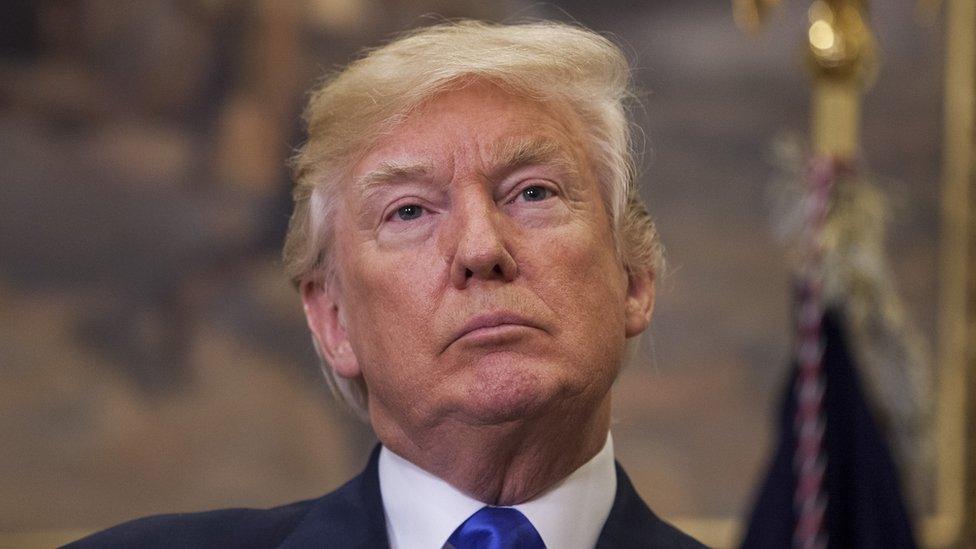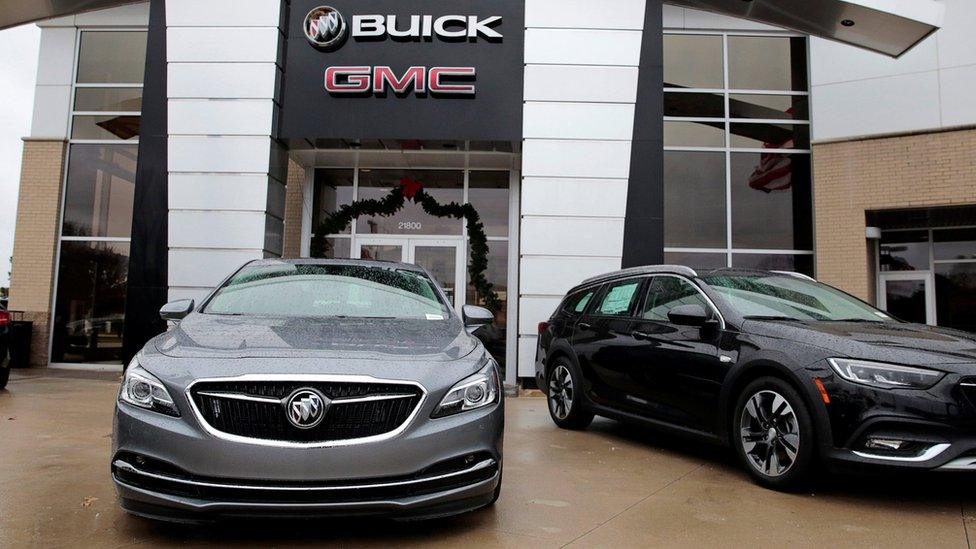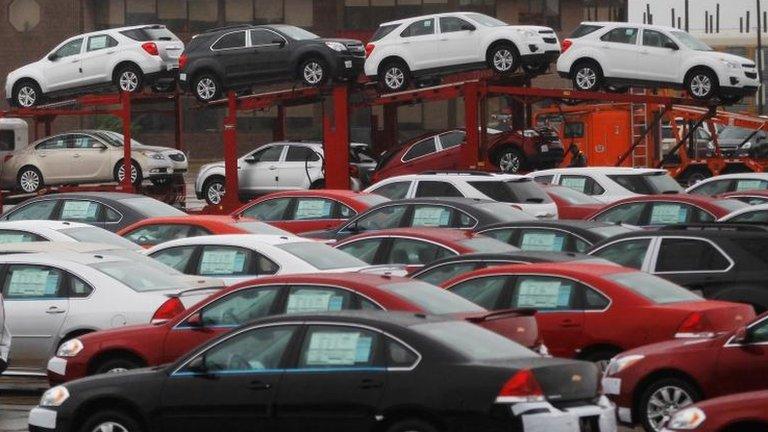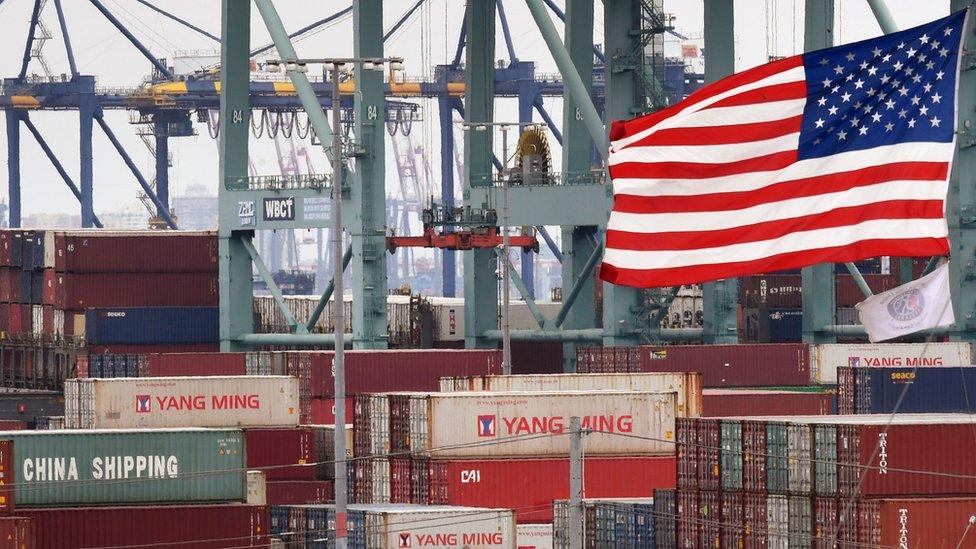Trump threatens new car tariffs after GM closures
- Published

Donald Trump has renewed threats to impose tariffs on imported cars after General Motors announced job cuts and plant closures.
The US President tweeted that tariffs were "being studied" and that duties could have stopped the GM closures.
Separately, the Trump administration warned it may raise tariffs on Chinese car imports.
The fresh trade threats come as Mr Trump prepares to meet his counterparts at the G20 summit.
The US president has lashed out at GM over its plan to cut more than 14,000 jobs and close factories in North America.
In his latest attack, Mr Trump pointed to the 25% duty on imported pickup trucks and commercial vans from markets outside North America as supporting the industry.
A similar tariff on car imports would mean "many more cars would be built here" and "GM would not be closing their plants in Ohio, Michigan & Maryland," he tweeted.

Allow X content?
This article contains content provided by X. We ask for your permission before anything is loaded, as they may be using cookies and other technologies. You may want to read X’s cookie policy, external and privacy policy, external before accepting. To view this content choose ‘accept and continue’.
Allow X content?
This article contains content provided by X. We ask for your permission before anything is loaded, as they may be using cookies and other technologies. You may want to read X’s cookie policy, external and privacy policy, external before accepting. To view this content choose ‘accept and continue’.

GM's decision to halt production at factories in the US and Canada has angered many politicians.
For Mr Trump in particular, the cuts are a blow, as he has made rebuilding the US car industry one of his administration's priorities.

GM plans to stop making several models in North America, including the Buick LaCrosse
While his latest comments mark an escalation in frustration over GM's restructuring plan, the administration has long been considering imposing new tariffs on vehicle imports.
In May, Mr Trump asked the department to determine the effect of imports of cars and car parts on national security. A similar process led to new tariffs on foreign steel and aluminium this spring.
The proposal to put tariffs on foreign cars and car parts in the name of national security has been widely criticised, both in Congress and in the business world.
China tariff threat
Separately, US trade representative Robert Lighthizer said he was examining options to raise US tariffs on Chinese vehicles to 40% - the level Beijing charges on US-made cars.
"China's policies are especially egregious with respect to automobile tariffs," Mr Lighthizer said. , external
Car tariffs on both sides have increased in the US-China trade war.
The US imposed a 25% tariff on Chinese cars, on top of the 2.5% already in place. China imposed a 40% tariff on US vehicle imports - much higher than the 15% it places on other trading partners.
"As the president has repeatedly noted, China's aggressive, state-directed industrial policies are causing severe harm to US workers and manufacturers," Mr Lighthizer said.
It comes a day before a highly anticipated meeting between Mr Trump and Chinese President Xi Jinping.
The pair are expected to speak on the sidelines of the G20 summit in Argentina, in a meeting that will be closely watched for any progress on their bitter trade dispute.
- Published26 November 2018

- Published16 January 2020

- Published26 July 2018
